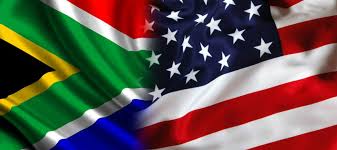APA-Johannesburg (South Africa) In the wake of the International Court of Justice (ICJ) genocide case brought by South Africa against Israel, Pretoria finds itself on shaky diplomatic ground.
The repercussions of this bold move are beginning to unfold, raising questions about the country’s international standing and its future relations with key global players.
South Africa’s decision to bring a genocide case against Israel at the ICJ was a significant step, demonstrating its commitment to human rights and international law.
However, this move has not been without consequences. It has stirred controversy and drawn criticism from various quarters, putting South Africa’s diplomatic relations under strain.
One of the most notable developments following the ICJ case is the recent bill submitted to the US Congress.
The bill calls for a review of Washington’s bilateral relationship with Pretoria, signalling potential shifts in US-South Africa relations.
According to reports monitored here last week, the bipartisan bill – which was introduced by US Republican congressman John James and Democratic Party congressman Jared Moskowitz –could threaten South Africa’s prospects to benefit from the African Growth and Opportunity Act (AGOA).
The bill comes a few months after US Senator Chris Coons called for an “out-of-cycle” review of South Africa’s eligibility for AGOA, a programme established by the US Congress in 2000 to provide tariff-free access to the US market for exports from 35 eligible countries in sub-Saharan Africa.
Eligibility depends on favourable annual reviews of a country’s trade and investment policy, governance, worker rights, human rights, and other conditions.
South Africa has been the biggest beneficiary of AGOA, but recently influential members of Congress have questioned Pretoria’s eligibility because of its warm ties with Russia, which are deemed to threaten US national security and foreign policy interests and thereby violating an AGOA condition.
A staunch ally of Israel, the US views South Africa’s recent ICJ action as undermining its national security or foreign policy interests.
Adding to the tension, South Africa’s Foreign Minister Naledi Pandor last week announced that she has been receiving threatening messages since her country filed the genocide case against Israel.
Pandor told reporters on February 8 that she has requested additional security personnel from Police Minister Bheki Cele.
“I spoke to Minister Cele because of the various messages I am getting and I felt that it was better we had extra security,” she said, adding that she was more concerned about her family because in some of the social media messages her children are mentioned.
This alarming development underscores the high stakes involved in South Africa’s decision to pursue the ICJ case and the lengths to which opponents are willing to go to express their displeasure.
The current situation evokes memories of Zimbabwe’s isolation after its land reform programme challenged the Western-led international order.
Like Zimbabwe, South Africa is taking a stand against perceived injustices, risking international backlash.
Zimbabwe had its economy crippled after all sources of international financial support were blocked following its decision to take land from white former commercial farmers in 2000.
Worsened by Harare’s self-inflicted political crisis, the manipulation of the global financial and economic architecture against Zimbabwe saw the country’s currency tumbling over the year while production capacity declined significantly.
However, it remains to be seen whether South Africa will follow Zimbabwe’s path or if it can navigate these diplomatic challenges more successfully.
JN/APA


